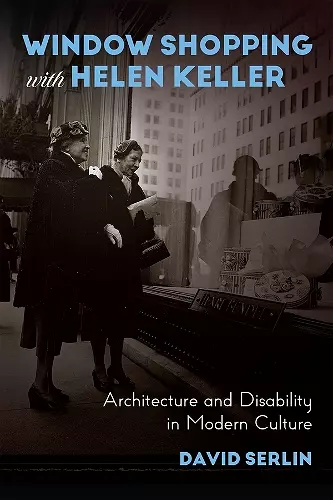Window Shopping with Helen Keller
Architecture and Disability in Modern Culture
Format:Paperback
Publisher:The University of Chicago Press
Published:8th Jan '25
Should be back in stock very soon

A particular history of how encounters between architects and people with disabilities transformed modern culture.
Window Shopping with Helen Keller recovers a series of influential moments when architects and designers engaged the embodied experiences of people with disabilities. David Serlin reveals how people with sensory and physical impairments navigated urban spaces and helped to shape modern culture. Through four case studies—the lives of Joseph Merrick (aka “The Elephant Man”) and Helen Keller, the projects of the Works Progress Administration, and the design of the Illinois Regional Library for the Blind and Physically Handicapped—Serlin offers a new history of modernity’s entanglements with disability.
“An interdisciplinary tour de force, Window Shopping with Helen Keller weaves together a remarkably diverse range of biographies, sites, and concepts. Serlin demonstrates that the disabled reimagining of buildings and cities extends far beyond, and well before, the arrival of ‘accessible architecture.’”
-- David Gissen, The New School
“Much anticipated, Window Shopping with Helen Keller makes the illuminating argument that the contributions of people with disabilities to architectural design precede the disability rights movement. This book is an essential text for the emerging field of critical access studies and architectural studies of disability more broadly.” -- Aimi Hamraie, Vanderbilt University
“Serlin is the best kind of historian—alive to the irreducible complexity of the past. The stories in this book are paradoxical yet formative in the history of architecture, and this richly generative book helps us to better understand disability throughout that history, beyond our contemporary questions of mere access.” -- Sara Hendren, Northeastern University
“Rather than seeing architecture-before-accessibility solely in terms of its failures for people with disabilities, Serlin finds a version of modernism with more varied sensory, tactile, and mobility options than most historians have acknowledged. The book flows with poetic insight on how bodies, in all their variations, make space.” -- Bess Williamson, North Carolina State University
ISBN: 9780226748979
Dimensions: 229mm x 152mm x 18mm
Weight: 340g
272 pages